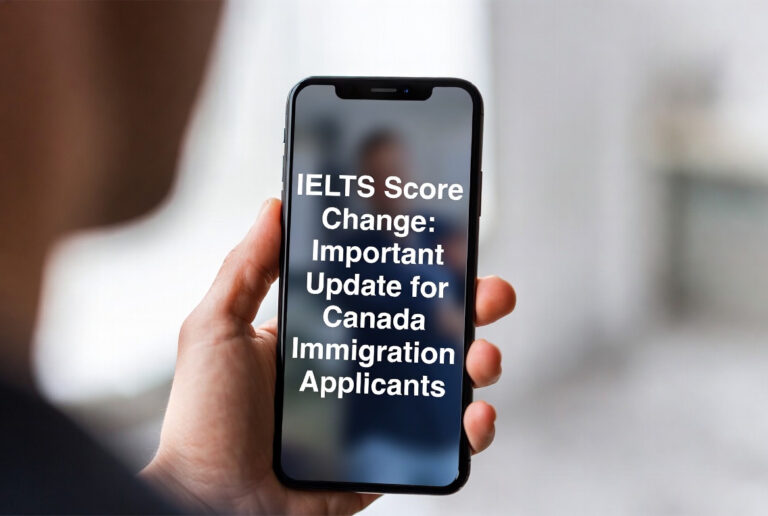As Canada continues to reshape its immigration programs to meet the needs of a fast-evolving labor market, many applicants are wondering: Does a cover letter still matter in the age of AI, automation, and digital immigration processing?
The answer is a resounding yes — perhaps now more than ever.
While forms, scores, and checklists dominate the technical side of immigration applications, a cover letter remains one of the few human elements that allows you to present your story, your intent, and your value to Canada. And as we look toward 2030 and beyond, its importance will likely grow — not diminish.
📌 Why a Cover Letter Still Matters in Canada Immigration
1. Your Personal Voice in an Automated System
IRCC (Immigration, Refugees and Citizenship Canada) is moving toward more digitized and AI-driven processing systems. But this also means officers will rely more on applicant-provided documents to make quick judgments.
A well-crafted cover letter can:
-
Clarify any inconsistencies or gaps in your application
-
Highlight your intentions to settle in Canada long-term
-
Emphasize ties to Canada, whether through family, job offers, or regional interests
-
Explain complex personal situations, such as previous visa refusals or status changes
Think of it as your direct conversation with the immigration officer, especially when there’s no interview.
2. Stronger Focus on Intent and Integrity by 2030
As immigration policies evolve, Canada is placing increasing emphasis on genuine intent, especially for:
-
Temporary foreign workers
-
Spousal sponsorships
-
Provincial nominee programs
A strong cover letter can proactively address red flags or concerns an officer might have, such as:
-
Why you’re pursuing a second diploma
-
Why you’re applying from a high-refusal-rate country
-
How your relationship is genuine (for spousal cases)
-
Your future career plans and how they align with Canada’s economic needs
With future immigration likely to include intent-based eligibility screening, your cover letter could be the differentiating factor in a borderline case.
3. Telling Your Story in a Human Way
By 2035, many Canadian immigration programs will be more competitive, selective, and aligned with labor market gaps. In such cases, your qualifications alone won’t always speak for you.
Your cover letter allows you to:
-
Show passion, clarity, and real commitment to Canada
-
Explain why you chose a specific province or city
-
Highlight your readiness to contribute economically and socially
-
Add context to your personal journey, not just your documents
Immigration is not only about skills — it’s about people. Your story matters, and a well-written cover letter brings that story to life.
🔮 The Future of Immigration in Canada: What It Means for Applicants
Let’s take a quick look at how Canada’s immigration is changing — and how that impacts the need for a compelling cover letter.
✅ Key Trends Shaping Immigration by 2035:
-
Occupation-focused selection: Programs like Express Entry are prioritizing in-demand jobs (e.g. healthcare, trades, tech).
-
Regionalized immigration: More pathways are opening for rural and underserved areas (RNIP, AIP).
-
Tighter integrity controls: IRCC is cracking down on misrepresentation and weak applications.
-
AI-based decision-making: Technology will assist, but not replace, officer judgment.
In all of these, a clear, targeted, and sincere cover letter helps:
-
Align your profile with program priorities
-
Show why you chose a specific region
-
Anticipate and address potential doubts
-
Build trust in your application
As immigration becomes more intent-driven, your cover letter will be your strategic narrative tool.
How to Write a Future-Ready Cover Letter for Canada Immigration
Here are five powerful tips to make your cover letter stand out — now and in the years to come:
1. Tailor It to the Program
Whether you’re applying for a study permit, spousal sponsorship, visitor visa, or PNP — one-size-fits-all won’t work. Speak directly to the officer, program, and purpose of your application.
2. Be Honest and Transparent
Immigration officers are trained to detect red flags. Address issues head-on — gaps in education, previous refusals, dual intent — rather than avoiding them.
3. Highlight Alignment With Canada’s Goals
Do your skills match labor shortages? Are you applying to a rural region where you’ll be valued? Mention this. Future programs will favor applicants who fit long-term goals.
4. Keep It Structured and Concise
Use headings or clear sections:
-
Introduction
-
Purpose of the Application
-
Personal Background
-
Ties to Canada
-
Future Plans
-
Conclusion & Contact
Aim for 1–1.5 pages maximum — make every word count.
5. Include Supporting Evidence References
Mention key documents: proof of funds, letter of acceptance, marriage certificate, job offer, etc. But don’t repeat what’s already on forms — add context and intention.
📝 Real Examples Where a Cover Letter Makes a Difference
🎓 Study Permit Applicant:An applicant switching from a BSc in Chemistry to a diploma in Business. The officer questioned the career switch — but the cover letter clearly explained how the program aligns with plans to open a pharmacy business in Canada. Approved.
👩❤️👨 Spousal Sponsorship:A couple had a traditional arranged marriage with a short courtship. Their cover letter walked through their cultural background, family involvement, and communication history. Approved — no interview needed.
🏥 Rural Nurse PR Applicant (RNIP):The applicant emphasized community ties, experience in remote care, and willingness to settle long-term in a small town. This helped the cover letter resonate with both the province and federal officer.
🔗 Final Thoughts: The Cover Letter Will Remain Relevant — If Not Essential
As Canada moves toward a future of precision immigration, driven by real-time labor needs, regional targets, and tech-enhanced decision-making, the human touch remains irreplaceable.
That human touch comes through your cover letter.
Done right, it becomes your voice, your intent, and your anchor in an otherwise data-driven process. Whether you’re applying in 2025, 2030, or beyond — don’t underestimate its power.
📣 Need Help With a Cover Letter for Your Immigration Application?
Our team specializes in creating custom, effective, and future-ready cover letters that support your immigration goals — no matter how complex your case is.
- Study Permits
- Spousal Sponsorships
- PNPs & Express Entry
- Visitor Visas
- Work Permits
📩 Reach out today and get the professional support your application deserves by our expert team of Eiffel Immigration.












